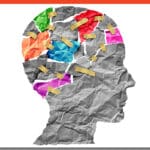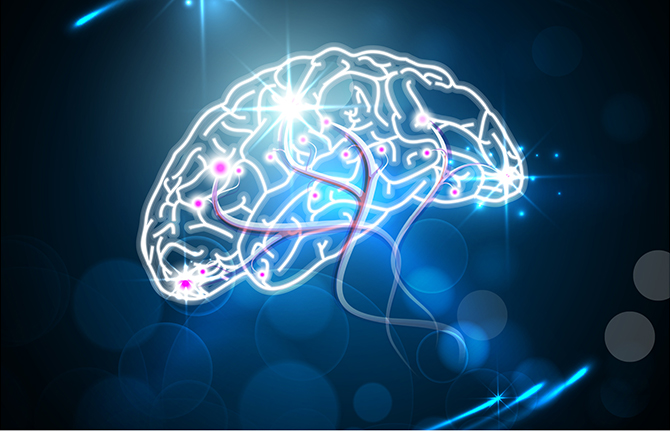
Using Social-Emotional Learning to Transform the School and Its Families
January 10, 2024
10 Things School Principals Should Know About Youth Mental Health
January 10, 2024Rabbi Yitzchak Menda
We are living in an unprecedented time. This is the first generation in history that will grow up with their parents staring more at their phones than their children’s faces. This generation can get same-day delivery and does not have to wait for anything they want. In this generation, if you have a question, you are one Google search away from an answer. If you don’t like what you are seeing on the internet or tv, you can scroll or click on to something else.
Back in my days, life was different growing up. Stores were closed at some points in the week. If you needed something, you probably had to wait till the weekend or when someone had the time to go to the store. If you went on the internet, you had that wonderful music of dial-up coming up from AOL and images loaded up line by line. If you wanted to watch or listen to something, you had to wait until the time it played on tv or the radio. If you had a really good question, you either went to the library or found someone who knew the answer. Curiosity was able to linger in the mind. Not so much today. We are living through a social experiment that might be wrecking our brains.
In our instant life, the constant need for information and the constant need for immediate results is creating havoc in our personal lives, for our children, and in our educational institutions. Delayed gratification and impulse control have become relics of the past to the detriment of our society. Everyone wants everything now, and they want it all. It’s not enough that the parents have to struggle with tuition, mortgage, and raising large families. We are going against billion-dollar companies whose whole purpose is to keep us glued to our phones and strip away our self-control so we can live on impulse. Parents want the classroom to change right away so their children can be successful. Teachers want immediate results with interventions so the class can run. We all want it all, and we want it now.
As educators, we can’t change the societal pressures, but we can give our children, our future, some tools to become well-adjusted children and adults. Today, anxiety, ADHD, depression, addiction, and other maladies are increasing in alarming numbers. We need to look at what is happening inside of us.
Brain Chemistry
Neurotransmitters are chemicals in the brain that carry, boost, and balance signals between neurons, helping us function. For example, oxytocin has been described as a “love hormone”. When you hold your baby, when you are with someone you enjoy being with, friends or family in positive experiences, your body releases oxytocin and you feel great inside. Epinephrine, also called adrenaline, is known as a fight or flight neurotransmitter; it kicks in in an emergency and allows your body to withstand great pain without registering or achieve great feats of strength you didn’t know you were capable of. Serotonin runs many systems and lack of it leads to anxiety and depression. Dopamine is the hormone that makes you feel good. Your phone dings and you receive a dopamine splash, free of charge. You finish your project and submit it, dopamine. You figure out a puzzle, dopamine. You learn and make a deep connection in your mind, dopamine. Did your package arrive from Amazon? Dopamine. Is social media making you feel good? Dopamine. Both little achievements and big achievements cause your body to secrete dopamine.
Dopamine has two functions that are relevant to us. When something is completed or achieved you get dopamine. When you are in the anticipation phase of achieving a goal, you get dopamine. Working towards a goal and feeling progress is another avenue of getting that good feeling. When you purchase something online and you know it’s coming, the anticipation alone can give you dopamine. You get a second hit, so to speak, when the package arrives.
Today, as we have lost the experience of anticipation, we all want that ding as soon as possible, as often as possible. This is profound and scary. We are losing our collective patience. There is no waiting anymore for anyone. Schools want students to change right away, parents demand results right away, and everyone at every level just wants results. With this in mind, is it a surprise so many kids have anxiety today? It’s hard to ask kids to have impulse control, which they developmentally and normally struggle with. But when we adults barely have any, how are they supposed to learn? It’s hard to ask children to learn to delay gratification when we barely model any delay ourselves. We are high on dopamine but for all the wrong reasons.
When dopamine is released there is a counter effect. It’s a neurotransmitter phenomenon when we achieve something; after the glow, there is a bit of disappointment. There is a lack of direction, a feeling of “now what?” This is part of the healthy seesaw in the brain – the burst of pleasure has to be balanced with a lack of pleasure. Without the balancing act, we become addicted to whatever is going to be giving us the next dopamine hit. For kids and adults, the need to not feel down and the need to feel good becomes an endless chase of addictions of various kinds of obsessive behaviors. It’s okay to be bored. It’s okay to not be scheduled every moment in life and in the class.
Social-emotional learning (SEL) has some tools to address this. The CASEL framework (casel.org) is an excellent model for SEL and it has certain standards that address self-regulation and self-awareness. It may sound like a chiddush, but self-control is no longer a societal given and has to be taught explicitly. Social-emotional learning can’t just be a nice marketing gimmick or something to be added on once in a while to be yotzei with. With society doing everything it can to lower our impulse control, we have to be explicit and address the issue head-on. As Jews, we naturally go against the gradient of society. And now we also have to battle this new lifestyle of addiction masquerading as convenience. We have to be very careful and very patient. We are not just changing our behavior, we are changing brain chemistry.
Suggestions for Educators
A few years ago, I was at a conference where the keynote speaker was talking about gamification of learning. Theoretically, gamification is a nice tool to compete with the outside world. But this is an example of giving into a terrible societal system. Teachers make their classrooms look like Times Square with posters in every empty space. “At least if they are not paying attention they will learn from a poster” is the rationale that I have heard multiple times before. They create lavish lessons where every few minutes something is happening: get this paper, write this, talk to this person. They feel they must transition four times in 20 minutes because the students are going to lose interest. We give out stickers, prizes, and praises so there are no “losers” and trophies so everyone feels good. It’s as if we are trying to model our life after an app. Technology, workbooks full of color, trinkets, and the push to maximize every minute of learning, are all pursued with the greatest of intentions, but we are feeding the dopamine monster with constant dinging.
Of course, I am not advocating for empty rooms, no celebrations, black-and-white textbooks and materials, no technology, or intentionally boring lessons to avoid this endless dopamine race. I am suggesting we become aware of what is going on externally in our society and internally in our brains so we can address it properly. Educators have to be aware of this brain chemistry and realize that although we may see short-term success using certain tools, we are also feeding into an unstable brain system that will only breed more focus and anxiety problems down the line.
Educators must tap into another part of brain chemistry: oxytocin. Oxytocin is a neurotransmitter that is connected with love and friendship. When you are with someone you love, when you are with good friends, the good feeling is from the oxytocin. The only way to foster this is to create real, warm relationships with students. Our students are starving for attention. The parents are too busy connecting with their extended family on WhatsApp to be connected with their own kids. They need positive relationships now more than ever. You are the one opportunity for real connection in our disconnected world.
Some may criticize that putting so much time and effort into relationship-building and social-emotional learning is a waste of time from learning. I would argue that by explicitly teaching our kids good habits of the mind and soul and by creating these bonds with the teachers that they are lacking from family, they are going to be able to learn properly.
Torah Connections
In a way, delayed gratification is built into halacha. Do you want breakfast? Daven first. Are you hungry on Shabbos? Wait for kiddush. Other things like fasting five times a year and the laws of family purity are all things that demand we control our impulses on various levels. The most important example of this is being unplugged on Shabbos. The safeguards of the Torah life give us a guideline to indulge at the right time and to abstain at the right time. This balance is the key. Our yearly cycle has built-in times for self-regulation. We have to be aware and point it out proudly.
Yeshayahu 64:3 states, Hashem acts for those who wait for him. Let’s become active role models of patience. Let’s show our families and our students the greatness of delayed gratification and impulse control. Let’s become aware of how with the greatest of intentions we are creating unsustainable minds. Let’s create spaces where we are aware of these connections and connect to our students with love.
Rabbi Yitzchak Menda is the principal for general studies at Cheder Chabad of Baltimore. Rabbi Menda started teaching at Oakland Hebrew Day School and later became the principal for Judaic studies at the Hebrew Academy of Tidewater. Rabbi Menda has a degree in psychology, a master’s in education, is a certified principal mentor, and is a current doctoral student at Yeshiva University.

